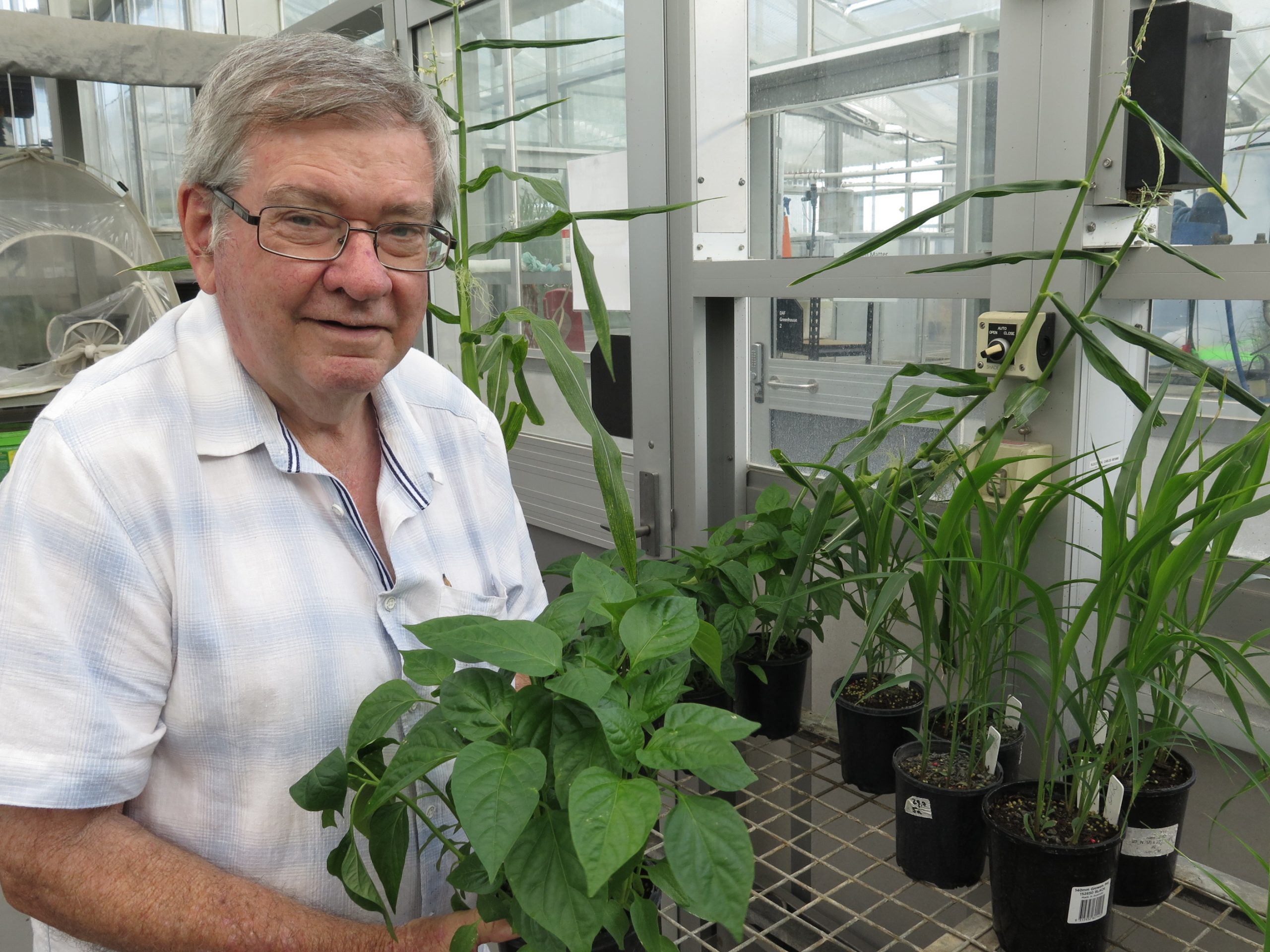Researcher of the Year award feature: Denis Persley
Denis Persley
Queensland
2011
Denis Persley is a plant pathologist with the Department of Agriculture and Fisheries in Queensland (DAF). Based at the Ecosciences Precinct at Dutton Park in Brisbane, Denis’ work is largely on the management of virus diseases in vegetables.
Denis has worked in plant pathology for the entirety of his career at DAF, which has spanned forty-plus years.
“My main work and interest has been in applied plant virology, and my first major work area was on virus diseases in grain crops and sweet corn,” Denis says.
“Virus diseases of vegetable crops became a major focus around 2006, which led to project VG07128 – Integrated Viral Disease Management in Vegetable Crops. The project involved virologists from all states.”
A strategic levy investment under the Hort Innovation Vegetable Fund, VG07128 ended in May 2011. However, since then the project team has maintained contact and collaborated across a broad range of plant pathology issues.
“This collaboration provides a broad perspective on what are the important issues across the country. It really helps with access to new techniques, trial results and national and international contact,” Denis says.
Several of those team members – including Denis – are part of the current national project led by Dr Cherie Gambley, Area wide management of vegetable diseases: viruses and bacteria (VG16086). VG16086 is due to finish mid this year.
Additionally, Denis was an extension plant pathologist for several years. During this period, he produced two handbooks about diseases in fruit and vegetable crop sin Australia.
“These were published by CSIRO in 2009 and 2011. It is great to see these books still in use by growers, students and agronomists,” Denis says.
Reward for effort
Denis was recognised for his outstanding contribution to the Australian vegetable industry when he received the Researcher of the Year award at the 2011 AUSVEG National Awards for Excellence.
Upon reflection, Denis says it was an honour for him and his project teams to be recognised for their work.
“I also appreciated the efforts of those who made the time to nominate me for the award,” he adds.
Denis says his 40-plus years in the industry hasn’t seemed that long.
“I’ve always enjoyed the work, particularly collaborating with colleagues in plant pathology and more broadly with the many great people in the vegetable and horticulture industries,” he says.
“As a virologist, vegetable crops are really interesting because unfortunately, many vegetable crops can be severely affected by virus – so there is plenty of scope to study the viruses and the insects that often spread them.”
Denis says researchers needs to understand the virus, the means of spread and host interactions if they are to hopefully develop useful control methods.
“Many viruses and vectors affect more than vegetable crops, so there are good opportunities to work across industries to better understand the big picture,” he says.
Recent research
Since receiving the Researcher of the Year award, Denis’ focus has largely been on developing practical, sound management systems for virus diseases.
“I have always had an interest in using resistant varieties for disease control and have been part of projects doing this in capsicum, tomato, sweet corn and cucurbits,” he says.
Over the past decade, Denis has worked with an international company on developing virus capsicum and tomato hybrids as well as an Australian seed company on assessing germplasm used to produce hybrids for national and international markets.
He has also collaborated with several companies in assessing new zucchini varieties for resistance to the potyviruses Papaya ringspot and zucchini yellow mosaic viruses – and has been impressed with the levels of resistance that have been recorded.
Denis says all the projects that he has worked on have been interesting.
“We have probably built on all the projects through recommendations for future work and doing at least some of this as opportunities and funding becomes available,” he explains.
“A project on carlavirus in beans (Characterisation of a carlavirus of French bean; VG15073) in Queensland was completed recently, but there are aspects which need further work to unravel. The more you look, the more you find!
“Nature is seldom simple.”
Looking ahead to further research that may be needed for the vegetable industry, Denis says the nature of pathogens and insects mean that there will always be issues with effective control. For example, new strains and hosts and changes in production practices, will present challenges for growers.
“Unfortunately, we will still most likely see new problems arrive in Australia like the fall armyworm,” he says.
Denis adds the COVID-19 pandemic and labour shortages have emphasised the urgency in developing mechanised harvesting, and the current cost and availability of fertilisers means that industry needs to be more efficient in their use.
Meanwhile, Denis’ current area of interest is disease resistance breeding and genetics. There is research underway that is looking more closely at the genetics and mechanisms of virus resistance in cucurbits, sweet corn and beans.
About the award
The Bayer Researcher of the Year award recognises a leading agricultural researcher who has helped to advance the industry through their work, and actively encourages growers to implement research outcomes on-farm. Award nominations are now open, closing on 15 April. Click here for further details.

